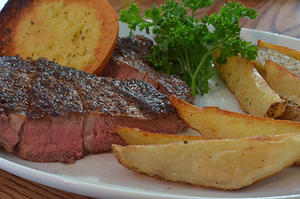You’ve likely heard about the health benefits of antioxidants, but do you know where they come from? If you’re one of the many people who would say that they aren’t entirely sure how to get that daily dose of antioxidants, these antioxidant-rich foods are great places to start.
- Raisins. Dried fruits, like raisins, contain well over 2,000 total antioxidants per serving.
- Blueberries. These sweet, plump berries have more antioxidants than a whopping 40 other types of fruits.
- Strawberries. One of the next best berries is the delicious strawberry, which helps to protect your body’s cells.
- Plums. Plums contain more than 4,800 antioxidants per serving, and dried versions offer even more.
- Oranges. Oranges are rich in the antioxidant beta-cryptoxanthin. It helps to lower your risk for arthritis.
- Spinach. That’s right—some veggies contain antioxidants, too. Spinach is packed with the types that promote healthy eyes and prevent blindness.
- Brussels sprouts. This tasty vegetable is becoming increasingly popular, which is a great thing because it is packed with isothiocyanates antioxidants that help to prevent cancer.
- Beets. Pink beets not only look pretty on top of a salad, they also deliver a hearty dose of antioxidants.
- Eggplant. Eat eggplant to take in the antioxidants that protect against plaque buildup in the arteries and prevent cancer.
20 Common Foods With the Most Antioxidants [WebMD]
Which Antioxidant-Rich Fruits and Vegetables Should You Be Eating? [Reader’s Digest]
8 Foods Rich in Antioxidants [FitDay]
10 Antioxidant-Rich Foods [Food Network]



 Equal Housing Opportunity
Equal Housing Opportunity